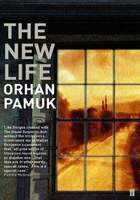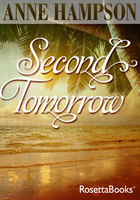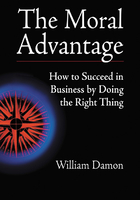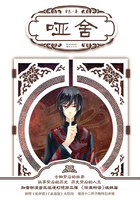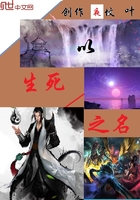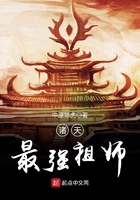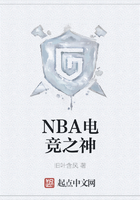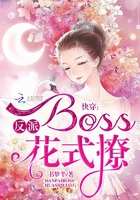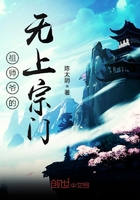Introduction
Individuals make history. There's no inevitability, and everything's up for grabs. Marx was right about lots of things, but he was wrong about that. As Karl Popper wrote in The Poverty of Historicism, 'the belief in historical destiny is sheer superstition, and there can be no prediction of the course of human history by scientific or any other rational methods.'
I'm quite pleased about that. It used to worry me back in the seventies, when Marxism was fashionable among the children of the sixties. I used to think: if the triumph of socialism is inevitable, why bother to work for it? I was never a Marxist because I found it demotivating. Scientific socialism is as false a god as God.
I'm even more pleased now, because if history were a stately process of pre-ordained forces, this book would be pointless, and I've had wonderful fun doing it. History is changed by all sorts of things, and one of them is which human being gets to the top of the tree. Supposing the American people had got the president they narrowly voted for in 2000, whose name was Al Gore, a great many things would be different.
How different? Well, one of the contributors to this book thinks the Second World War would never have happened if his man had become Prime Minister, and he makes a pretty good case for it. That's how different it could be.
Each of these chapters describes a premiership that never came about – but might easily have happened. The criteria for inclusion: the person never attained the top job, but there was a particular moment when, had the chips fallen slightly differently, he would have done.
J. R. Clynes lost the Labour leadership to Ramsay MacDonald by a paper-thin margin; if he had won it, he and not MacDonald would have become Labour's first Prime Minister. Lord Halifax had the opportunity to take the premiership in 1940 instead of Winston Churchill; he turned it down. In January 1957 the Tory grandee Lord Salisbury, who could not pronounce the letter R, invited the Cabinet into his room one by one and asked: 'Is it Wab or Hawold?' The smart money was on them all saying Wab, but the majority said Hawold, and so Harold Macmillan it was. Neil Kinnock's election defeat in 1992 was narrow and unexpected. And so on.
I've been strict about gatekeeping. Just being the leader of the Conservative or Labour Party was not enough to get in, because it didn't mean you were in with a shout of getting to 10 Downing Street. There was never a moment when anyone thought, dear me, Iain Duncan Smith might become Prime Minister sometime soon.
Even leading your party into an election didn't hack it. There was never any prospect that Arthur Henderson was going to lead Labour to victory in 1931, nor that William Hague might win for the Conservatives in 2001, so you won't find them here. Michael Foot gains admittance, not because he led Labour in the 1983 general election – everyone knew he would lose by a landslide, and he did. He's in because there was a real prospect of him beating James Callaghan in the very tight Labour leadership contest of 1976, when Labour was in power.
At first I planned to include Gordon Brown (stands against Blair for the leadership in 1994, wins, and become Prime Minister in 1997) but he was grimly determined to render himself ineligible for inclusion in this book, and succeeded in doing so by actually becoming Prime Minister in 2007.
These criteria explain why there are no women on my list. I wanted to have at least one, because I know a lot of people who will be very sniffy about their absence, but she had to fit the criteria. I tried hard to construct the moment when Barbara Castle or Shirley Williams might have become Prime Minister had circumstances been different, but it isn't there.
Getting to be Prime Minister is more often than not a matter of chance. It's quite likely that neither Harold Wilson nor Tony Blair would ever have got the job had it not been for the sudden, early and unexpected deaths of their respective predecessors, Hugh Gaitskell and John Smith.
The authors of this book have asked themselves questions like: what shape would the welfare state and the Cold War have taken if the Prime Minister had been Herbert Morrison instead of Clement Attlee? What if the Eurosceptic Butler had become Prime Minister instead of the Euro-enthusiast Harold Macmillan? The uncompromising Eurosceptic Hugh Gaitskell instead of the sophisticated compromiser and Euro-enthusiast Harold Wilson? How would our present life be different without New Labour – a name we would never have heard if either Kinnock or Smith had become Prime Minister and not Tony Blair?
Does it matter? Yes, it matters a lot. Understanding what might have happened, how things might have been better (or worse) if we had taken a slightly different path, is what will help us to do things better next time. What might have happened matters almost as much as what really did happen. Some serious historians look down their noses at counterfactual
history, and most politicians regard it as suitable only for butterflies like me, but I maintain that counterfactual history isn't just fun. It IS fun – much more fun than the real thing. But it also matters. It can teach us things that we will never learn from the dull facts.
Each of the chapters in this book describes events that really might have happened – and almost did.
Francis Beckett
February 2011


